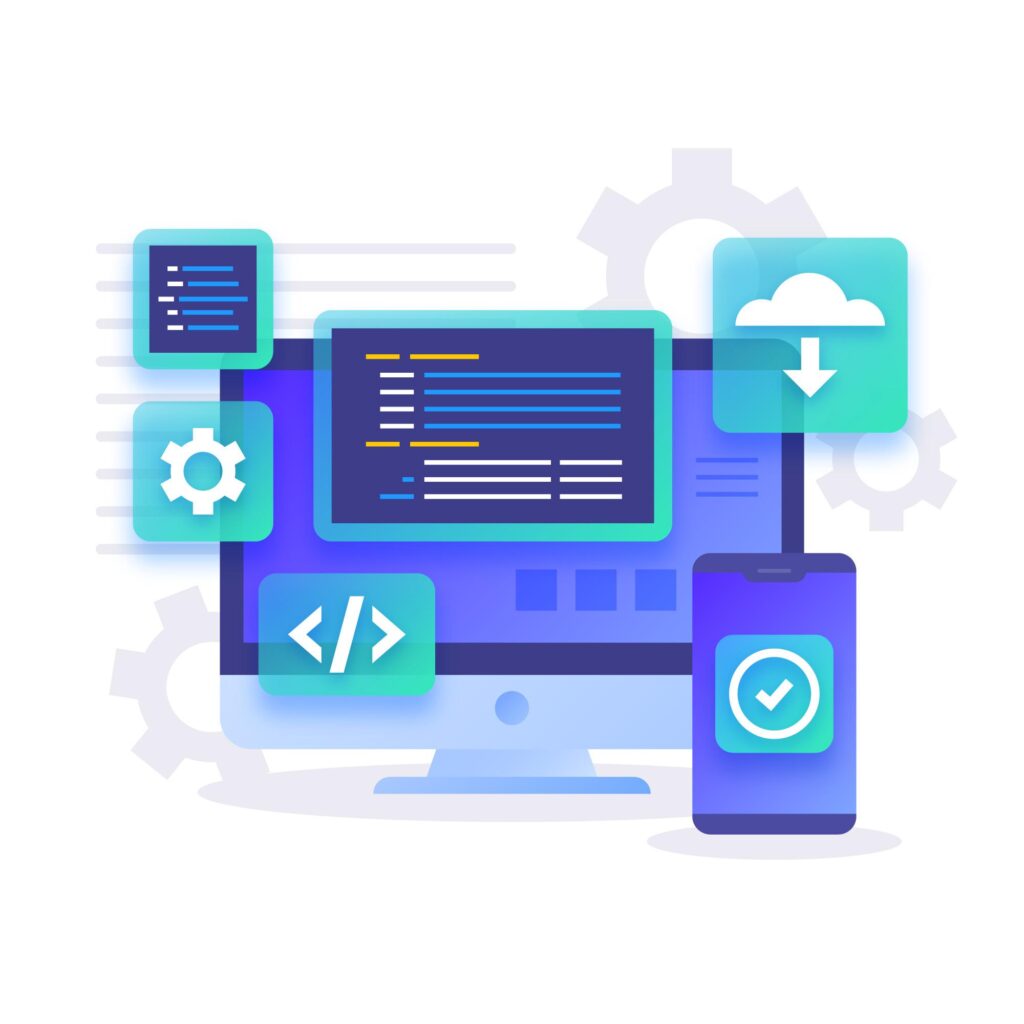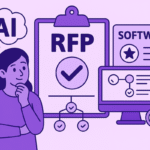A software development agency plays a more critical role in enterprises today than ever before. In a market where speed, scale, and innovation define leadership, in-house IT alone is rarely enough. Companies must deliver seamless digital experiences, modernize legacy systems, and adopt emerging technologies quickly—yet many face bottlenecks such as limited bandwidth, difficulty hiring specialized talent, and the complexity of large-scale transformation.
This is where agencies step in, not just as execution partners but as strategic collaborators. They bring agility, niche expertise, and future-ready practices that enterprises cannot easily build internally. More than cost efficiency, modern enterprises now expect agencies to align with long-term goals, contribute to innovation, and help develop sustainable digital ecosystems.
Why Enterprises Rely on External Expertise
Enterprises once depended entirely on in-house IT teams. However, this model often proved to be slow, rigid, and limited in scale. Complex transformation programs stalled, and innovation pipelines slowed down because internal teams were stretched thin. Today, enterprises are shifting toward hybrid collaboration, where agencies complement in-house expertise with specialized skills and global talent.
Agility, scalability, and faster time-to-market are now mission-critical. Enterprises cannot afford product delays, prolonged system upgrades, or security gaps that put revenue and reputation at risk. By working with agencies, organizations gain the ability to move faster, experiment with new ideas, and deploy solutions at global scale.
What makes this shift even more significant is the evolving role of agencies themselves. No longer treated as outsourced vendors, they are increasingly viewed as innovation partners. They bring strategy, design thinking, and emerging tech expertise that enterprises need to compete in unpredictable markets.
This shift also marks the end of the outdated perception that agencies exist only to reduce costs.
Beyond Outsourcing – Agencies as Strategic Growth Partners
The role of a software development agency is expanding far beyond outsourcing. Modern enterprises no longer view them as transactional suppliers but as co-creators of long-term value. Instead of focusing on quick fixes, agencies are now expected to align with broader business strategies and help build sustainable digital ecosystems.
They bring specialized expertise in designing resilient platforms, streamlining digital workflows, and preparing enterprises for growth at scale. This partnership mindset enables businesses to remain competitive in volatile markets, where adaptability and innovation often dictate success.
Supporting Enterprise Digital Transformation
- Modernizing Legacy Systems: Agencies help enterprises transform outdated infrastructures into scalable, digital-first solutions that integrate seamlessly with modern technologies.
- Cloud-Native Adoption: By guiding organizations through cloud migration and infrastructure modernization, agencies ensure scalability, flexibility, and cost efficiency.
- Embedding AI and Automation: Agencies integrate machine learning, analytics, and intelligent automation into business processes, enabling better decision-making, efficiency, and actionable insights.
Driving Product Innovation
- Co-Creation of Platforms: Rather than simply building to specifications, agencies collaborate with internal teams to design and launch new digital products that address market needs and requirements.
- Rapid Prototyping: Using agile methodologies, agencies accelerate idea validation and product testing, reducing risk and shortening time-to-market.
- Experience-Driven Design: With expertise in UX and UI, agencies craft solutions that prioritize usability, accessibility, and customer satisfaction—helping products stand out in crowded markets.
By combining transformation with innovation, agencies enable enterprises to go beyond incremental improvements and build capabilities that drive long-term growth.
Beyond strategy and innovation, agencies also solve one of the biggest challenges for enterprises today: the shortage of specialized talent.
Bridging the Talent and Technology Gaps
The pace of technology adoption is accelerating. From AI to Web3 to edge computing, enterprises need expertise they cannot always hire internally. Agencies fill these gaps with access to specialized global talent and up-to-date knowledge.
By partnering with agencies, enterprises reduce the risks of talent shortages and gain flexibility in adopting modern tools. This ensures they stay competitive even when internal capacity is limited.
Flexible Resourcing Models
- Dedicated Teams: Fully aligned squads that act as extensions of the enterprise’s internal workforce, focused solely on long-term projects and strategic initiatives.
- Hybrid Models: A blend of internal and external talent that balances control with efficiency, allowing enterprises to manage sensitive operations internally while agencies handle specialized or large-scale tasks.
- On-Demand Developers: Rapid access to skilled professionals who can be brought in during peak project cycles or to accelerate delivery timelines without disrupting internal workflows.
- Reduced Hiring Burden: Agencies eliminate the delays and costs associated with sourcing niche expertise, ensuring enterprises have immediate access to the right talent without undergoing lengthy recruitment processes.
Talent is one piece of the puzzle. Enterprises must also trust agencies with governance, compliance, and enterprise-grade security.
Governance, Compliance, and Security as Shared Responsibilities
Enterprises operate in heavily regulated environments. Agencies must ensure compliance while delivering innovation. This includes embedding global frameworks, adhering to regional regulations, and integrating secure practices from the outset.
By sharing responsibility for governance and compliance, agencies provide enterprises with the confidence to scale globally without risk.
Risk Mitigation Strategies
- Clear SLAs: Defined performance benchmarks and accountability.
- Business Continuity: Distributed delivery models that reduce dependency on single teams.
- Security-First Architectures: Protecting against vulnerabilities before they surface.
Alongside compliance, agencies are also helping enterprises accelerate innovation through the use of cutting-edge technologies.
Accelerating Innovation with Emerging Tech Practices
Emerging technologies define the next wave of enterprise competitiveness. Agencies help enterprises pilot AI, automation, decentralized apps, and IoT solutions to prepare for the future.
They integrate these technologies into DevOps pipelines, enabling continuous delivery of more intelligent, more connected systems. Enterprises benefit by testing innovations without committing heavy budgets upfront.
Experimentation Without Overhead
- Low-Risk R&D: Agencies enable experimentation without high costs.
- Rapid MVPs: Building prototypes quickly to test viability.
- Scalable Trials: Expanding successful experiments into enterprise-scale solutions.
This focus on emerging technologies ultimately ties into long-term value creation, where agencies become integral to enterprise resilience.
Long-Term Enterprise Value Creation
Enterprises look beyond project success. They want partners who create sustainable value, help build intellectual property, and strengthen resilience at scale. Agencies contribute to lifecycle management, continuous optimisation, and global-ready systems that keep businesses competitive.
This long-term partnership goes far beyond cost savings. It builds enterprise capabilities for decades to come.
Future-Ready Partnerships
- Strategic Guidance: Advising enterprises on upcoming technologies.
- Sustainable IT Practices: Encouraging energy-efficient, green technology adoption.
- Enduring Collaboration: Moving from transactional engagements to trusted relationships.
Taken together, these shifts demonstrate how agencies have redefined their role within enterprise ecosystems.
Conclusion
The modern enterprise landscape is characterised by rapid change, intense competition, and ongoing pressure to innovate. In this environment, a software development agency is no longer just a coding partner or a stopgap for talent shortages; it is a strategic growth enabler. By bridging technology and business objectives, agencies help enterprises modernize their core systems, embrace emerging technologies, and develop digital products that directly impact growth.
Their value lies not only in execution but in co-creation, driving transformation, fostering innovation, and ensuring resilience in volatile markets. From governance and security to AI-driven experimentation and sustainable IT practices, agencies deliver more than short-term solutions. They build the foundations of long-term enterprise competitiveness.
As enterprises prepare for the future, the choice is clear: growth will not come from technology adoption alone, but from partnering with the right agencies that align strategy, innovation, and execution. Those who see agencies as true strategic partners will be best positioned to thrive in the digital era.






